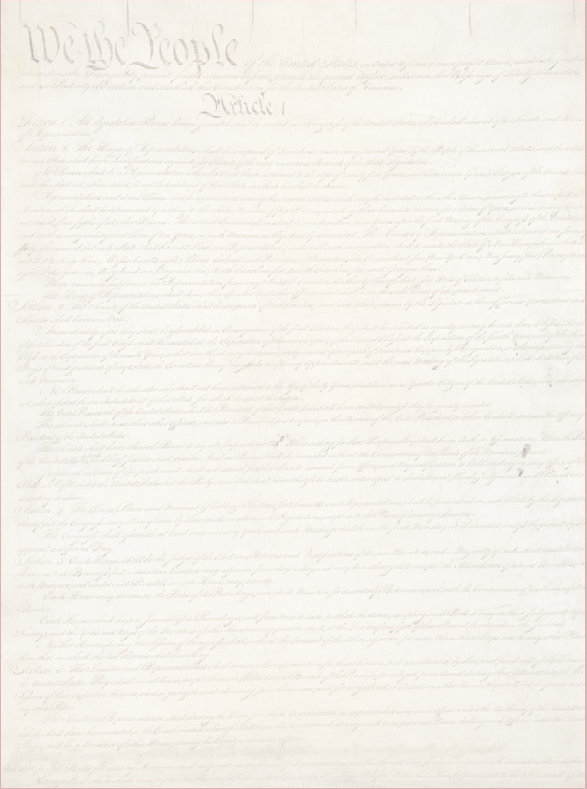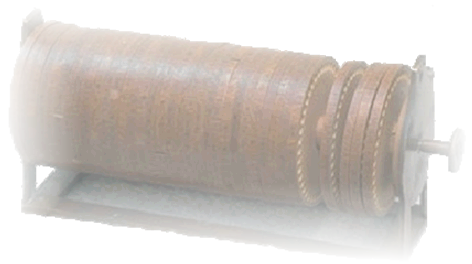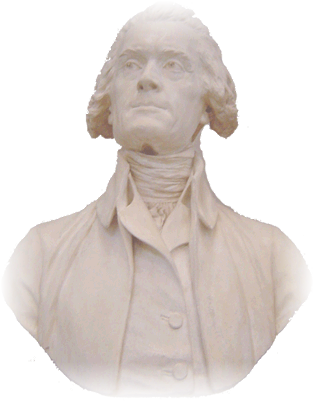


Virginia SOLs in the following cirriculum areas are supported by this program:
CE.6a; CE.66; CE.6C
USI.7a; USI.7b
CE.6a; CE.66; CE.6C
USI.7a; USI.7b
Freedom Protected by Colonial-Era Cryptography
Constitution
Our
Secret


From the beginning of the American republic, espionage, in all its forms, has been major component of business, governmental, diplomatic, and military affairs.
As an element of espionage, cryptography plays an important role in the private, national, and international dealings of this country.
Secret writings protected colonial correspondence from the British, especially during the American Revolution.
Thomas Jefferson developed a cipher system that was used to protect written communiqués concerning, among other topics, the drafting of the US Constitution in 1787. He was serving as Minister to France as the delegates struggled in Philadelphia to create a governmental framework for the new nation. To keep apprised of convention developments, James Madison sent his fellow Virginian several letters, much of which were written in cipher. Jefferson had no trouble deciphering the messages: he had created the system and had shared it with Madison prior to leaving for Paris.
One of America’s foremost gadget gurus, Jefferson also invented a six-inch-long, hand-held wooden apparatus he called a “wheel cypher.”
Over a century after he had devised it, elements of the US government and military were still using the third president’s system in their various wheel ciphers. For these contributions, Jefferson is considered the “Father of American Cryptography.”
As an element of espionage, cryptography plays an important role in the private, national, and international dealings of this country.
Secret writings protected colonial correspondence from the British, especially during the American Revolution.
Thomas Jefferson developed a cipher system that was used to protect written communiqués concerning, among other topics, the drafting of the US Constitution in 1787. He was serving as Minister to France as the delegates struggled in Philadelphia to create a governmental framework for the new nation. To keep apprised of convention developments, James Madison sent his fellow Virginian several letters, much of which were written in cipher. Jefferson had no trouble deciphering the messages: he had created the system and had shared it with Madison prior to leaving for Paris.
One of America’s foremost gadget gurus, Jefferson also invented a six-inch-long, hand-held wooden apparatus he called a “wheel cypher.”
Over a century after he had devised it, elements of the US government and military were still using the third president’s system in their various wheel ciphers. For these contributions, Jefferson is considered the “Father of American Cryptography.”
Espionage, counterespionage, intelligence gathering, counterintelligence activities, surveillance, countersurveillance and just plain spying are not products of recent times and events. The circumstances surrounding the creation of our Constitution serve as one outstanding example.
© History is a Hoot, Inc. 2003-2012
secret

